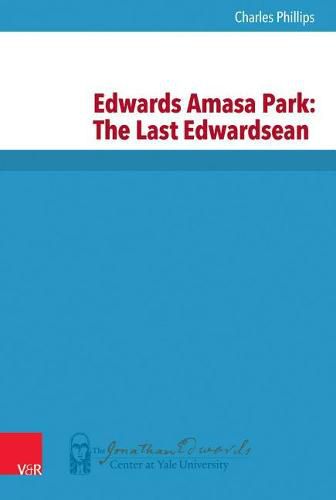Readings Newsletter
Become a Readings Member to make your shopping experience even easier.
Sign in or sign up for free!
You’re not far away from qualifying for FREE standard shipping within Australia
You’ve qualified for FREE standard shipping within Australia
The cart is loading…






Edwards Amasa Park (1808-1900) of Andover championed Edwardsean Calvinism in the United States from the Jacksonian era until the very close of the nineteenth century by employing rhetorical strategies that lent his New England theology fresh apologetic usefulness. The thesis demonstrates that Park has been incorrectly identified as a Taylorite but, extending the argument of Joseph Conforti, ought to be viewed as re-casting his inherited Hopkinsian exercise scheme into a fresh historical synthesis influenced by contemporary patterns of thought. Park’s own training at Andover in the irenic divinity of Moses Stuart and Leonard Woods, his application as rhetorician of the work of Hugh Blair and George Campbell and his exposure in Germany to the Vermittlungstheologie of Friedrich Tholuck and Julius Muller gave specific definition to his own theological project. Additionally, the thesis argues that Park ought not to be viewed as a romantic idealist in the line of Horace Bushnell or as a proto-liberal in advance of the Andover liberals who succeeded him. Park retained a life-long commitment to a commingled epistemology and methodology derived from Lockean empiricism, Baconian induction, natural theology and Scottish common sense realism. As a formidable apologist for his revivalist inheritance identified with Jonathan Edwards and Samuel Hopkins, Edwards Amasa Park conserved the substance and prolonged the influence of his beloved New England theology by securing for it modes of expression well fitted to his nineteenth-century audience.
$9.00 standard shipping within Australia
FREE standard shipping within Australia for orders over $100.00
Express & International shipping calculated at checkout
Edwards Amasa Park (1808-1900) of Andover championed Edwardsean Calvinism in the United States from the Jacksonian era until the very close of the nineteenth century by employing rhetorical strategies that lent his New England theology fresh apologetic usefulness. The thesis demonstrates that Park has been incorrectly identified as a Taylorite but, extending the argument of Joseph Conforti, ought to be viewed as re-casting his inherited Hopkinsian exercise scheme into a fresh historical synthesis influenced by contemporary patterns of thought. Park’s own training at Andover in the irenic divinity of Moses Stuart and Leonard Woods, his application as rhetorician of the work of Hugh Blair and George Campbell and his exposure in Germany to the Vermittlungstheologie of Friedrich Tholuck and Julius Muller gave specific definition to his own theological project. Additionally, the thesis argues that Park ought not to be viewed as a romantic idealist in the line of Horace Bushnell or as a proto-liberal in advance of the Andover liberals who succeeded him. Park retained a life-long commitment to a commingled epistemology and methodology derived from Lockean empiricism, Baconian induction, natural theology and Scottish common sense realism. As a formidable apologist for his revivalist inheritance identified with Jonathan Edwards and Samuel Hopkins, Edwards Amasa Park conserved the substance and prolonged the influence of his beloved New England theology by securing for it modes of expression well fitted to his nineteenth-century audience.